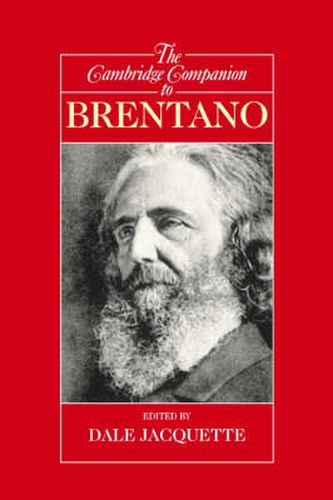Readings Newsletter
Become a Readings Member to make your shopping experience even easier.
Sign in or sign up for free!
You’re not far away from qualifying for FREE standard shipping within Australia
You’ve qualified for FREE standard shipping within Australia
The cart is loading…






Franz Brentano (1838-1917) led an intellectual revolution that sought to revitalize German-language philosophy and to reverse its post-Kantian direction. His philosophy laid the groundwork for philosophy of science as it came to fruition in the Vienna Circle, and for phenomenology in the work of such figures as his student Edmund Husserl. This volume brings together newly commissioned chapters on his important work in theory of judgement, the reform of syllogistic logic, theory of intentionality, empirical descriptive psychology and phenomenology, theory of knowledge, metaphysics and ontology, value theory, and natural theology. It also offers a critical evaluation of Brentano’s significance in his historical context, and of his impact on contemporary philosophy in both the analytic and the continental traditions.
$9.00 standard shipping within Australia
FREE standard shipping within Australia for orders over $100.00
Express & International shipping calculated at checkout
Franz Brentano (1838-1917) led an intellectual revolution that sought to revitalize German-language philosophy and to reverse its post-Kantian direction. His philosophy laid the groundwork for philosophy of science as it came to fruition in the Vienna Circle, and for phenomenology in the work of such figures as his student Edmund Husserl. This volume brings together newly commissioned chapters on his important work in theory of judgement, the reform of syllogistic logic, theory of intentionality, empirical descriptive psychology and phenomenology, theory of knowledge, metaphysics and ontology, value theory, and natural theology. It also offers a critical evaluation of Brentano’s significance in his historical context, and of his impact on contemporary philosophy in both the analytic and the continental traditions.